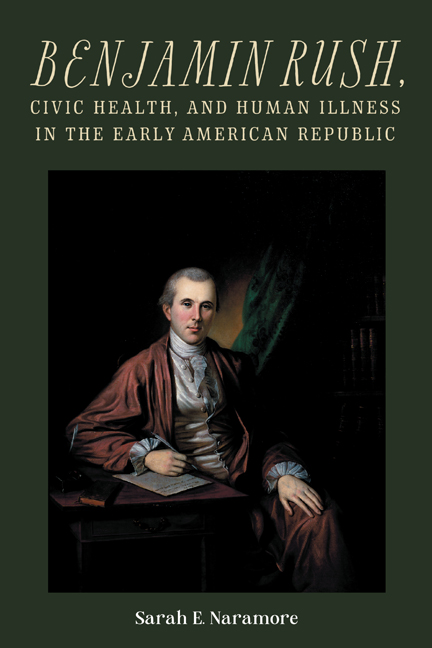6 - Confronting Climatic Ills
Published online by Cambridge University Press: 10 January 2024
Summary
Benjamin Rush grew up as a city boy. He spent most of his childhood in the expanding large town that was mid-eighteenth-century Philadelphia and remained in the city as an adult. Living and working in a city, however, did not mean Rush was completely comfortable with the effects of urban spaces on American health. Indeed, like others of his era he worried that cities damaged human bodies over time. Health in turn, of course, could have a direct impact on the function of a family, community, and ultimately republic. As cities grew so too did the ubiquitous health and environmental concerns. Rush argued that “civilization” produced artificial and complicated diseases among the British and city-dwellers as early as 1774. Rush's colleague and sometimes rival, William Currie, concurred in his description of the United States, writing that the close proximity between people and buildings made locations more complex and as a consequence, diseases more dangerous. In response to the claim from a correspondent that Boston's diseases were different from those of the surrounding countryside, Currie reasoned that disease existed “in all large cities where the houses are built close together, and the occupations of the inhabitants are unfavorable to exercise; and the more so, as they recede from habits of temperance; especially where luxury and fashion take the lead of reason and common sense.” He contrasted this lifestyle with that of the farmer who through labor “acquires vigour of body and resolution of mind … [and who] respires a salubrious air.”
Currie did not exaggerate when he described the close quarters of working-class inhabitants of American cities. In Philadelphia most families lived in small row-houses of three rooms: a front work room, a back room, and an upstairs room. At the same time, many others lived in alleys that cut through the original grid pattern. This created a much denser city center than the one William Penn envisioned in the late seventeenth century for his “country town”.
- Type
- Chapter
- Information
- Publisher: Boydell & BrewerPrint publication year: 2023



